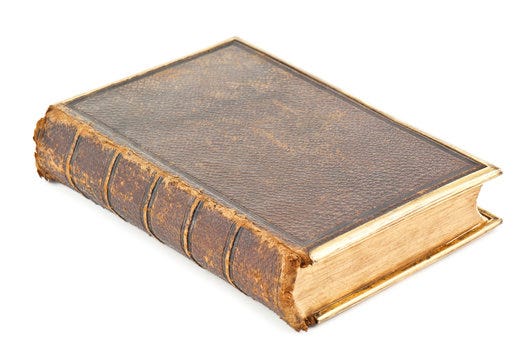No doubt, you have a few favorite books. Hopefully, you have also found a book so good that you decided to try another book by the same author—then another, and then another. After reading four or five books by the same author, it is not unusual to begin to feel as if the author is present to you, a voice who speaks to you at times, something like a friend.
Many have had this experience with C.S. Lewis. Many first came to appreciate him as a child reading through the books in the Chronicles of Narnia when Lewis became a kind of childhood friend. But Lewis is not just a writer of children’s books; he is famous as a great essay writer, fiction writer, and writer of Christian apologetics. Is C.S. Lewis your friend? If not Lewis, what author would you note that is always or frequently with you in conversation and thought?
For me, I will note Augustine and Chesterton. I have hung around these friends for decades; we continue to get together. They are some of my oldest friends. I am pretty close to Josef Pieper too and have known him awhile; he often talks to me and won’t stop. About seven years ago I was introduced to Marylynn Robinson who differs from Augustine, Chesterton, and Pieper in one striking way—she is still walking the earth.
The maxim optimus magister bonus liber (est) is a parallelism that reads in the Latin word order “the best teacher, a good book is.” The Latin word est (is) can be assumed or left out. There is a corollary maxim that runs, bonus liber amicus optimus or “a good book is the best friend.” Both maxims are complimentary: a good book is both a friend and a teacher.
I, like many, can cite Lewis as a friend (after all he loved Chesterton). Lewis knew the value of reading good books, good old books. He wrote an essay, “On the Reading of Old Books,” as an introduction to an old book by Athanasius, On the Incarnation (written at about 318 AD). Here Lewis, better than anyone I think, tells us why we should read good books, and good old books.
There is a strange idea abroad that in every subject the ancient books should be read only by the professionals, and that the amateur should content himself with the modern books. Thus I have found as a tutor in English Literature that if the average student wants to find out something about Platonism, the very last thing he thinks of doing is to take a translation of Plato off the library shelf and read the Symposium. He would rather read some dreary modern book ten times as long, all about “isms” and influences and only once in twelve pages telling him what Plato actually said. The error is rather an amiable one, for it springs from humility. The student is half afraid to meet one of the great philosophers face to face. He feels himself inadequate and thinks he will not understand him. But if he only knew, the great man, just because of his greatness, is much more intelligible than his modern commentator. The simplest student will be able to understand, if not all, yet a very great deal of what Plato said; but hardly anyone can understand some modern books on Platonism. It has always therefore been one of my main endeavours as a teacher to persuade the young that firsthand knowledge is not only more worth acquiring than secondhand knowledge, but is usually much easier and more delightful to acquire.
Note that Lewis calls himself a tutor. This is part of the Oxford tradition and also present at St. John's College where I attended. A tutor often teaches privately and often has the responsibility of guardianship, guidance and protection. At St. John’s College, a great writer like Plato is regarded as the teacher in the classroom; the tutor’s role is to guide students before the great teacher in a text like Plato’s Symposium.
Thus when we who are teachers exercise this responsibility, it is our honor to introduce students to Plato directly knowing (from our previous encounter with Plato) that he is a great author, greater than all of his commentators. We know that the delight we had reading Plato can become their delight; we prefer that they hear directly from Plato rather than from us describing Plato, we prefer that they go straightway ad fontem, to the source, to the fountain.
Thus even a great teacher and writer like Lewis knows that it is often best for him to be a tutor and let Plato be the teacher. Even the teacher, therefore, knows that sometimes the best teacher is the good book he brings before his students. The good teacher is happy to place Plato before his students saying of Plato, “he must increase, and I must decrease.”
Not only will Plato instruct and inform, but he will inspire. To read one dialog of Plato well is to read, inevitably, a second. Soon Plato becomes not only a delight but a friend. If the friendship deepens, Plato will start to influence you in subtle ways like our incarnated friends do. Just as the habits, sensibilities, and preferences of our friends often gradually become our own, so can Plato’s ideas and ways of thinking and seeing the world become ours. We find ourselves becoming more inquisitive, asking questions about assumptions, and musing on the nature of things like justice, a good life, happiness, and virtue–just as Plato does. Just like we can become in various ways like our friends, so do we start to become like Plato. And we enjoy returning to him, just as we enjoy cavorting with our friends. The bookish evidence of this is the well-worn, marked-up book, with the unraveling binding and dog-eared pages.
The good teacher will not only introduce the optimus magister (best teacher) but help cultivate the friendship for yes, a teacher can be a friend of particular and particularly valuable kind. Augustine himself, says so, noting the remarkable sympathy and fellowship that the teacher and student enjoy. A good teacher will arrange for lots of unhurried time for encounter, engagement, and conversation, and in various settings.
We all know the value of a good book placed in our hands at the right time. We give and receive books as gifts; we likely all can remember a particularly meaningful book that helped and possibly changed us. Perhaps you still have books you grew up with and treasured. Maybe you read through all of the Chronicles of Narnia and the Lord of the Rings trilogy–several times. Perhaps characters like Peter or Lucy or Bilbo or Aragorn remain dear to you. If so, the names of C.S. Lewis and J.R.R. Tolkien may have a kind of magical quality to them for the characters have become your friends and you owe them a great debt of gratitude for introducing these characters to you, yes, even for creating them.
Some have grown up in the imagined worlds of Narnia or Middle Earth or similar imagined worlds from the likes of Lewis Carroll, A. A. Milne, and Beatrix Potter. Great books, even great children’s books, may have shaped you deeply, even helping to form your moral universe and understanding. One chemistry professor I know grew up outside of any church tradition but found his moral life shaped by the Lord of the Rings trilogy of Tolkien, which he read and reread. When tempted to join various dubious activities, he found himself saying, “No. Aragorn would never do that.” What a great friend is Aragorn—but the better friend is Tolkien who made the introduction.






Excellent post! :) Thank you for sharing!
Lewis and Tolkien are definitely at the top of my "favorites" list. LOTR was the first book I definitively remember feeling like I was coming home to, or visiting old friends, when I re-read it.